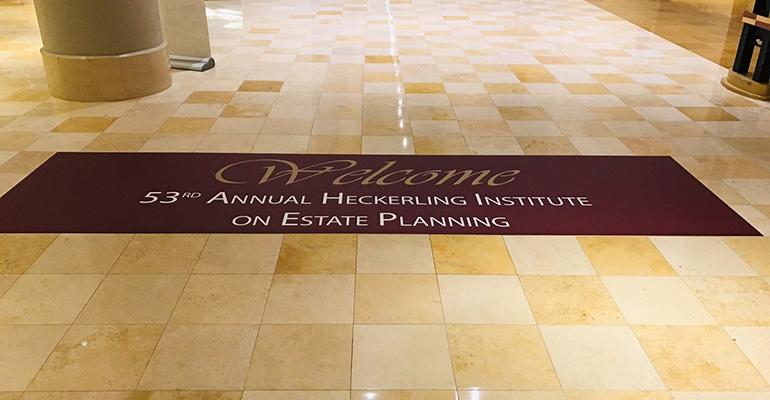It’s been a little over a year since the Tax Cuts and Jobs Act took effect, and a much-discussed topic at this year’s Heckerling Institute on Estate Planning is how practitioners can incorporate some of the Act’s provisions into their clients’ estate plans.
One such issue is how the Act can be used to help moderate wealth clients (that is, those with assets of between $20 million and $50 million). Gideon Rothschild, a partner at Moses & Singer LLP in New York City, will be speaking about this issue at a session on Thursday. I had a chance to catch up with him to learn about why this issue is so important.
Gideon notes that moderate wealth clients may be reluctant to give away the full exemption amount of $11.4 million because it represents a big percentage of their assets, and they want to make sure they’ll have money available to them if they need it. On the other hand, they don’t want to lose the opportunity to take advantage of the higher exemption amount, which will sunset in 2025 and could possibly end earlier if the Democrats take control in 2020. And, clients’ estates will likely continue to grow and compound as the years go by, making doing nothing an even more costly option.
Fortunately for these clients, there are certain strategies that can help them take advantage of the high exemption, while maintaining some control over their assets. For example, if the client is married, he can set up a spousal lifetime access trust, naming his spouse as the primary beneficiary. The distributions from the trust will go to the spouse, but presumably, the client will have indirect access to those distributions through his spouse. Complications can ensue if the spouse predeceases the client or the couple gets divorced, but there are ways to get around some of these problems. An unmarried client can set up a domestic asset protection trust in favor of a beneficiary, such as a child. The client may be able to get access to the funds in a variety of ways, including by giving the trustee the power to make loans to the client.
Gideon also recommends against gift splitting (that is, each spouse giving away $5.7 million). Rather, one spouse should give the entire $11.4 million, thus using up the full exemption.





